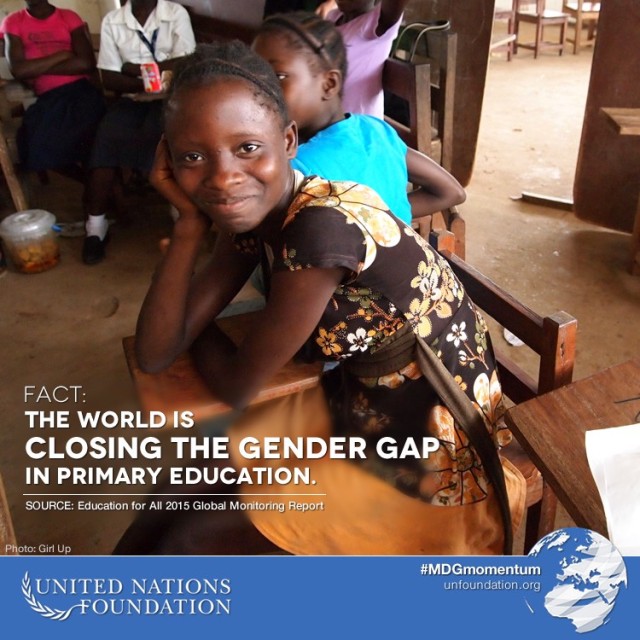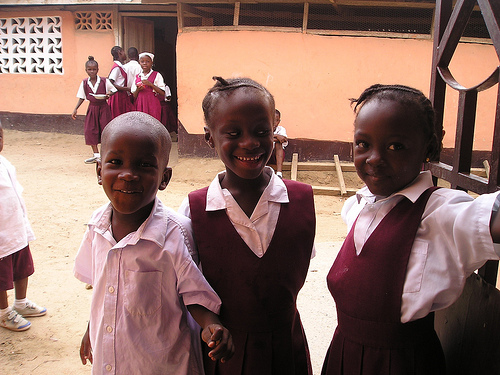
I practiced asylum law for the first seven years of my career, representing refugees who were fleeing persecution and human rights abuses in their home countries and seeking safety in the U.S. These are people who are not easy to forget and whose stories shouldn’t be forgotten. Many of their stories – the details of their lives, their losses, their dreams – have stayed with me over the years. The remarkable thing about the refugees I have known is not only their ability to survive incomprehensible losses, but also the strength and hope and determination they have to remake their lives in an entirely new country. To learn new skills, speak new languages, adapt to new cultures. To me, the refugee experience symbolizes this week’s Photo Challenge theme: Renewal
The picture above was taken in Buduburam Refugee Settlement in Ghana, which I visited three times between 2007 and 2010. Buduburam was home for 20 years to more than 30,000 Liberians who fled the bloody conflict in their West African country. Officially closed this year, Buduburam was a small, bustling Liberian city in the countryside outside of Accra. Life was hard on the camp, where refugees even had to pay for water to drink and for access to the latrines. To improve their opportunities, many of the refugees at Buduburam enrolled in skills training courses; the photo shows some of classes offered by the New Liberian Women Organization (macrame being one of them, as you can also tell by the colorful plant hangers). Even in a time of limbo, the refugees at Buduburam were striving for renewal. Those refugees who could afford it sent their children to school as education offers a chance for a new life.

I still hold many former asylum clients in my heart. I’d like to share the story of one refugee family I represented. For me, it is a parable of renewal.
James and Julia (not their real names) had been politically active in their native Kenya. Julia, in particular, had been very active in speaking out against an oppressive government. They had a young son, who I’ll call William, who had huge, solemn eyes. When the police came to their house to arrest Julia, a police dog bit William on the head. You could still see the jagged scar on his scalp more than a year later when, having left everything they owned behind to escape Kenya, they were seeking legal assistance with their asylum claim in the U.S.
In police custody, Julia had been brutally beaten. She was also repeatedly raped in custody, including with objects such as the muzzle of a rifle and a Coke bottle. This testimony was critical to the success of their asylum case, so we had worked with Julia to prepare her to tell her full story, with as much accuracy as possible and as many details as she could remember. “Just tell the truth about as much as you can remember of those weeks,” I urged. We all knew it would be painful.
Julia testified about her experiences in a straightforward manner and in excruciating detail, but with such poise and dignity that both the asylum officer and I were in tears. Asylum officers are specially trained federal officials who make decisions about asylum cases based on a written application and an in-person interview. During my time practicing asylum law, I rarely saw an asylum officer actually cry during an asylum interview.
I remember well how James sat next to her, utterly still. Not touching her, not looking at her, but supporting her as she spoke. Anguish is the only word that could possibly describe the look on his face as he listened to her testimony. I had to look away. Even in my role as their attorney, a role which requires a special intimacy, I felt the need to give their family some small space of privacy as they recalled those terrible days.
Years later, after they got their citizenship, James and Julia had a party to say thank you to all of the people who had helped them. In addition to their attorneys, there were people from their church and other members of the Kenyan community. They now lived in a big, new house out in the suburbs. Julia was close to graduation from nursing school. William, who I hadn’t seen since he was three, was now in middle school. He was a straight-A student and talented musician who had just gotten braces. They had another child, too – a daughter born here in America. She was wearing a pink tutu.
It had taken a lot of hard work for James and Julia to get to where they were. They had experienced many challenges and frustrations with adapting to life in this strange, new country. But they persisted and, through sheer effort and determination and a bit of creativity, slowly but steadily they moved forward, finding healing for themselves and building a new life for their family. It wasn’t easy, but James and Julia had managed to make something new out of nothing.






You must be logged in to post a comment.